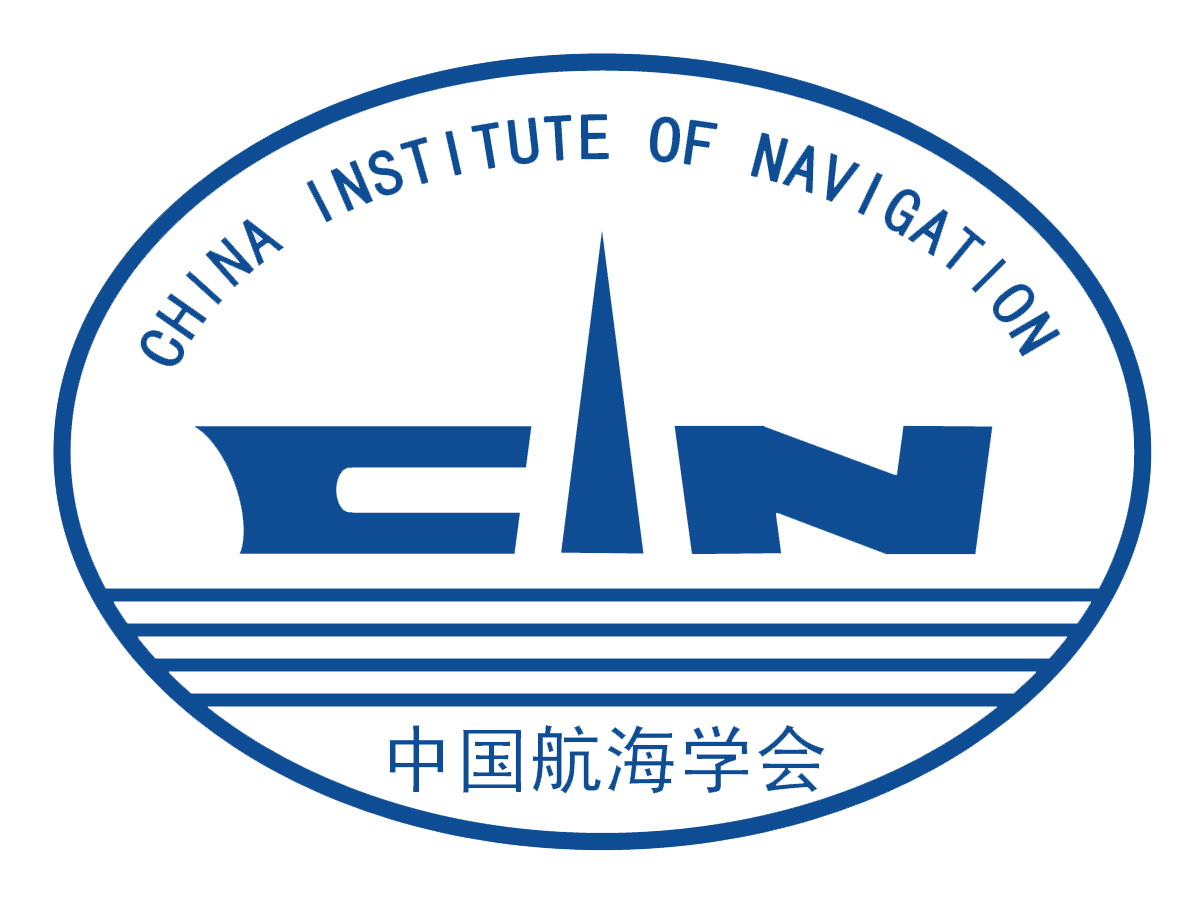“鄱阳湖”号和“洪泽湖”号是对姐妹远洋货船。几年前,同时下水远航,吨位,馬力,船型同出一辙,是海上罕是的“孪生姐妹”。
这天,十分湊巧,旧历除夕前夜,兩艘船同时仃靠在美国的西雅图港。
“鄱阳湖”号大厨楚雄和“洪泽湖”号大厨秦淮是当年厨师学校的“同窗好友。
俩人都烹调一手好菜,楚雄出身淮北,精通徽菜。秦淮来自江苏,江淮菜是“行家里手”。
姐妹船在国外相遇十分难得,又赶上即将到来的除夕之夜。两船商定,除夕之夜,共进晚歺,并以”十全十美”的菜名做顿”海上年夜饭”。
做菜容易冠名难。俩人约定:各自准备十几道菜,每道菜冠己数字,从“一”开始朝下排列,而且都是“家喻户晓”的名菜。
俩人虽说出身厨师学校,达到”规定“要求还真有些难度!
楚雄和秦淮为不辜负大伙的期望,找资料,查网站。终于在除夕前夜,一切准备就绪。
除夕当天,太阳刚刚噙山,船员们陆续来到“洪泽湖“号的大台(歺厅)。
在新春锣鼓声中,楚雄首先登场,端出一盆菜,並兴致勃勃地介绍说:“一品豆腐”!
人们放眼望去;雪白鲜嫩的豆腐浸泡在飘着冬菇,笋片,姜末的湯里,发出诱人的鲜香!”豆腐富有元固醇,可邦助代谢人体里内的胆固醇,海员应该经常食用!”
楚雄边说边喊大家品尝。
一阵啧啧称赞声中,秦淮不紧不慢地端上一盘黑白分明,闪着晶莹油花的小妙:“烧二冬!”。
大伙还未缓过神来,秦淮一板一眼地说;“《燒二冬》主料是冬菇和冬笋。冬菇有菌中之王的美称,冬笋制干又称南参。俗话说,好事成双,两种营养佳品,即清脆爽口,又富有缮食纤维和微量元素。大伙千万别忘了常吃它!”
第一回合不分上下,大伙对俩位大厨的精心准备和黙契配合报以热烈的掌声。
人们期盼着第三道菜亮相。
这时,船上的“春节晚会”开始了。在一阵欢快的音乐声中,“鄱阳湖“号船长捧着一盆热腾腾的菜从厨房走出来:”《三合菜》,春节之际,祝伟大祖国合谐富强,各位家庭合谐美好,全船上下合谐共济!“
人们边鼓掌边朝菜盆里望去,盆内翠绿的葱白和蛋清上,正齐地摆放着魚丸,肉丸和肉糕。
楚雄介绍说:“鱼丸先由鱼制成茸,肉丸和肉糕全是上等的猪腿肉,具有滋补健胃功效,是地道的徽菜!”
谁知,楚雄的话音刚落,秦淮脸常微笑从厨房走了出来:“四喜丸子!”
“四喜丸子!”顿时歺厅里一片喊声:“这道菜,年夜饭家里都有!“。
“对!”秦淮接着说:“四喜代表福,寿,禄,禧,预示閤家团园。从廋肉为主料,油炸七八分熟放入高汤清蒸而成。“
此时,歺厅里的气氖越来越高涨。人们还未来得及品尝“四喜丸子”,楚雄手举着大盘,吆喝着闪亮登场:”五柳鱼!”
楚雄将菜盘朝歺桌上一摆,顿时鲜味逼人。只見一条大鱼摆在盘中,鱼两侧一字形划开;蒜蓉,姜沬,鲜菇丝,笋丝,火腿丝,红辣丝五柳勾芡散落鱼背上,一簇鲜嫩的香菜点涰在鱼背上。
楚雄高声喊道:“这是道北京名菜。相传鱼背上五颜六色的丝纹,形如柳叶,故称《五柳鱼》,是官廷御菜之一。”
人们饮着酒,品尝着年夜饭的美食,几盘菜很快吃光了,却不见秦淮出场。
正当人们盼望之时,《洪泽湖》号船长身著“厨师服”,手捧一个大盘子,急步从厨房赶了出来:“对不起,烤并躭误了点时间。”
随着走出来的秦淮接了句:“六角旋并!”
“对,六角旋并!“《洪泽湖》号船长提高了嗓门说:“这是典型的西北名吃,是经过精心制作的六角形烤并。外焦里软香脆可口。六角代表《六六大顺》。新春之际,我代表《洪泽湖》号船员,祝願《鄱阳湖》号全体兄弟们,新的一年一顺百顺!”
歺厅里的掌声和欢呼声,划破了寂静的大西洋夜空,传的很远很远:”祝祖国繁荣富强!”,“祝全国人民幸福安康!”此起彼伏。
谁知,正当高潮之中,楚雄却没有及时亮相:“第七道难道搁浅了?”
正当人们议论纷纷时,楚雄和一名水手抬着一个大饭筒,晃晃悠悠从厨房走出来:“八宝饭来喽!”
这时,一个船员突然站了起来:“这是上海年夜饭里必备的甜点!”
“说的对。”楚雄撓有兴趣地说:“八宝饭是用糯米,核桃仁,密钱,葡萄干,密棗,青梅,糖玫魂,豆沙八种食材加上白糖和猪油做成的。密棗醒目甜密,香糯脦而不厌。”
人们争先恐后地将“八宝饭”盛到自己碗里。
船员在茫茫的大洋里吃上这顿别开生面的“年夜饭”,十分开心。人群中只有一位望着桌上的饭菜发呆。他是“洪泽湖”号上的轮机长,身高馬大,患有高血压。望着歺桌上的大鱼大肉和甜奌直摇头。
“洪泽湖”号船长望了一眼,连忙朝厨房喊了一声:“上菜!“
“来喽!“秦淮应声而出:“九层塔煎茄子。”
这是道专门为“素食客“准备的年夜菜。
这是一道用紫茄制做的素菜:茄子切成薄片,先用油煎软,然后两面均匀撒上椒盐,叠成九层塔型墩放盘中,最后淋上辣椒未和盐爆香的勾芡,形味俱佳。
“洪泽湖“号轮机长顿时眉开眼笑,大口吃起来。
这时,电视机里的新年钟声响了。
“鄱阳湖”号船长和“洪泽湖”号船长,俩人双手捧着一个硕大的盘子,来到歺厅中间:“素什(十)錦!”
这是一道全部用素菜烹调的传统名菜:木耳,萝卜,笋丝,豆腐干,白菜,香菇,黄花菜,绿豆芽,豌豆苖,猪腿肉十样煸炒而成,是广泛被推荐的年夜菜!
楚雄和秦淮此刻忘记了忙绿和疲劳,共同举杯,大声喊道:“祝两个姐妹船兄弟,在新的一年《十全十美》!”
《海上年夜饭》在一阵掌声和欢笑声中结束。
事后,人们问起两位大厨为何配合如此默契时,“洪泽湖”号船长笑着说“为准备这顿特殊的海上年夜饭,两位大厨一夜未合眼!“
The Poyang and the Hongze are sister ships. Both are cargo ships
designed to travel far distances, both are named after famous lakes in
China, and both set sail at the same time with the same tonnage,
horsepower, and model, making them rare “twin sister” ships.
Coincidentally, both ships also docked at Seattle Harbor at the same
time on one Chinese New Year.
The Poyang’s head chef, Chu, and the Hongze’s head chef Qin were also
close friends who attended culinary school together. The two of them made
delicious meals for the sailors on board their ships, even though their
culinary styles were very different. Hailing from different parts of China,
they highlighted the specialities of their hometowns in their cooking. Chef
Chu was from Huabei, so he was proficient in preparing traditional Anhui
cuisine, while Chef Qin put an emphasis on Jianghui dishes from his
hometown in Jiangsu.
It was uncommon for sister ships to meet abroad while sailing different
voyages, and a chance encounter on Chinese New Year made the occasion all
the more a cause for celebration. The crews of the two ships decided to
spend Chinese New Year together and have a gigantic feast, complete with
ten unique and exquisite dishes.
Putting together a memorable meal for the sailors was an easy task for
the two skilled chefs, but giving their dishes special and festive names
was difficult. The two chefs agreed to prepare ten dishes altogether, and
the name of each dish had to make reference to a number, allowing the
finished meal to be “a perfect ten”.
To live up to the expectations of their crews, Chu and Qin rummaged
through cookbooks, studied the websites and blogs of celebrity chefs, and
finally got ready to prepare a once-in-a-lifetime Chinese New Year feast
for the sailors.
Just before sunset, the entire crews of the twin sister ships gathered
on the Hongze’s Grand Terrace to commence their feast.
To the sound of traditional Chinese celebratory music, Chef Chu entered
the terrace first. He held onto his dish carefully and cried out
enthusiastically, “The First Admiral’s Tofu!”
All the crewmen instantaneously turned their gazes to the dish: glowing
pieces of snow-white tofu were soaked in a thin broth, with assorted
vegetables and pieces of ginger decorating the plate, filling the sea air
with an irresistible aroma. Tofu is full of protein and fiber and could
help lower cholesterol levels in the body, making it a nutritional favorite
for Chinese sailors.
The crewmen couldn’t help themselves and took their first bites before
Chef Chu could even finish talking. As they launched into applause, Chef
Qin walked confidently onto the terrace carrying a plate of glistening
black and white vegetables, and announced, “The Two Sides of Winter!”
As the sailors got ready for their second course, Qin continued, “The
main ingredients of The Two Sides of Winter are mushrooms and asparagus. In
Chinese, these two ingredients are called “winter mushrooms” and “winter
asparagus” respectively, because they are believed to be able to grow in
cold climates. Both are commonly used in Chinese medicine, as they are not
only delicious but are highly nutritious, too. Please enjoy this dish, and
as the saying goes, ‘Good things come in pairs’!”
Qin’s second course, like the one before it, was once again met with
applause. The sailors tried to hold down their excitement as they tasted
the dish and looked forward to the next one.
In the Chinese culture, Chinese New Year, or the Spring Festival, is
the largest festival of the year. No matter where the sailors are in the
world, they always put on an exuberant celebration for the holiday. This
year was no different - as the music got louder and as the men began to
dance, the captain of the Poyang himself appeared from the kitchen and took
out the next course: “This course is named ‘The Romance of Three
Delicacies’! This dish symbolizes peace and prosperity for our hometowns,
families, and our crews!”
The sailors cheered for their next course, which incorporated emerald
pieces of spring onion and soft egg whites, with meatballs and fish laid
out on top.
Chef Chu explained, “The fish was freshly caught and cut into thinly
shaved pieces, and the meatballs are made from locally sourced pork. This
is a crossover between cultures - foreign ingredients arranged according to
a refined Anhui recipe!”
The sailors wolfed down their fourth course, and the chefs’ cooking
was starting to pick up speed. As soon as Chef Chu finished his
description, Qin carried out the next course with a shining grin across his
face: “Four Walls of Happiness! Or, ‘Si Xi Wan Zi’!”
“‘Si Xi Wan Zi’!” The crew repeated, “Our families make this
recipe every single Chinese New Year!”
“Exactly!” Qin replied, “The Four Walls of Happiness refers to
fortune, longevity, wealth, and happiness, and together the four walls
represent reunion and family, like a round and juicy meatball! I used lean
meat for the meatballs and fried them for seven or eight minutes before
steaming them in broth.”
With a familiar dish in sight, the crew became even more exhilarated.
Before they even had time to make a dent in the fourth course, the fifth
was already on its way. Chef Chu held his plate up high and shouted, “The
Fish with Five Tails!”
The fragrance of the fifth course was swiftly compelling for the
soldiers. Chu set down the plate on the table, and though the fish itself
didn’t really have five tails, it was garnished with five spices and
ingredients: garlic, ginger, shredded mushrooms, bamboo shoots, and slices
of ham, scattered near the tail of the fish and creating the illusion of
five fishtails.
“This is a famous dish from Beijing,” Chu introduced, “According to
a folk legend, the colorful pattern at the back of this fish was shaped
like a willow leaf, and the fish was appropriately named ‘the Fish with
Five Tails’. This dish was only served in the imperial court in ancient
times.”
The crew poured wine into their glasses and steadily enjoyed their
Chinese New Year feast. They had almost finished all the courses served so
far, but Qin had yet to appear with the next course.
Finally, as the sailors were about to lose hope, the captain of the
Hongze appeared in a chef’s uniform. Holding a large bowl, he said,
“Sorry for the delay!”
Qin followed after him and presented: “The Hexagonal Pancake!”
“Yes - the Hexagonal Pancake!” The captain echoed. He cleared his
throat and carried on, “This is a classic snack from Northwestern China, a
baked hexagonal pancake that takes a lot of focus and precision to get
right. It’s crispy on the outside but soft on the inside, and since six is
a very auspicious number in China, the six sides represent harmony and
smooth voyages. On this special occasion, I, the captain of the Hongze,
would like to wish our brothers on the Poyang a pleasant and harmonious
year!”
The crewmen of the Hongze raised their glasses to toast their brothers
from the Poyang. The crews from both ships spread their well wishes to one
another, “Here’s to the prosperity of our hometowns!” some bellowed,
while others cheered, “Here’s to the health and happiness of all our
people!”
Though the celebration was well underway, Chef Chu was nowhere to be
seen. Some sailors joked, “Did our seventh course sink under the ocean?”
As the crew speculated, Chef Chu and a helpful sailor lifted a large
pan from the kitchen and hurried to the Grand Terrace. “The Rice of Eight
Treasures is here!”
Suddenly, one crew member stood up and shouted, “This is an essential
dessert for Chinese New Year!”
“Correct!” Chu responded in satisfaction, “The Rice of Eight
Treasures is made with glutinous rice, walnuts, candied fruits, raisins,
dates, green plums, dried roses, and bean paste as its eight ingredients or
‘treasures’, mixed with sugar and oil. This rice is especially sticky and
sweet, but not too dense or heavy.”
The seafarers rushed to scoop some rice into their bowls. To be able to
have such a grand Chinese New Year feast as they floated on the ocean away
from home, made the sailors extremely content and cheerful. Nevertheless,
there was one sailor among them who stared blankly at the rice without
taking a single bite. It was none other than the captain of the Hongze
himself, who was tall and muscular, but suffered from high blood pressure.
He shook his head at the sugary rice, and hoped for something more
palatable.
The Hongze Captain gazed at the direction of the kitchen and shouted,
“More courses, please!”
“Coming!” Chef Qin said back. “Nine Layered Eggplants!”
The Nine Layered Eggplant was a famous course for health-conscious
sailors and vegetarians. The eggplant was first cut into fine slices, then
stir fried in an iron pan. Qin sprinkled pepper and salt on the sides of
the plate, stacked the eggplant like a tower with nine layers, and drizzled
a sauce made with minced chilli pepper to add some color and taste to the
dish.
The Captain of the Hongze’s eyes lit up at once. A smile quickly
returned to his face as he took large bites of the eggplant.
In China, a special TV program is aired every Chinese New Year, and
this year, the crewmen of the Hongze and the Poyang were lucky enough to be
able to watch the special celebration on TV a few thousand miles away from
home. As the countdown to Chinese New Year rang out on television, the
captains of the Hongze and the Poyang walked to the kitchen side by side,
carried out a giant pot, and set it down in the middle of the table. “Ten
Assorted Vegetables!” They presented together.
This dish is also made with famous traditional ingredients: tree
fungus, radish, bamboo shoots, dried tofu, cabbage, shiitake mushrooms,
cauliflower, bean sprouts, peas, and pork shank. The vegetables and meat
are sauteed together, making it a popular choice in many families for
Chinese New Year.
Despite spending an entire night in the kitchen, conjuring up
distinctive meals and composing creative monikers for their dishes, Chef
Chu and Chef Qin didn’t feel tired at all. Instead, they lifted their
glasses and proposed a toast to the seamen: “We hope that the crews of our
twin sister ships have a wonderful Chinese New Year, complete with ten
perfect dishes!”
The two ship crews’ ‘Nautical Chinese New Year Feast’ ended in
cheers and applause.
Ever since that night, whenever anybody asked how Chef Chu and Chef Qin
worked so amicably and effectively with one another, the Captain of the
Hongze always chimed in and said, “These two chefs are so dedicated, that
they didn’t sleep a wink on Chinese New Year just to prepare a special
Nautical New Year’s feast for our crews!”
来源: 中国航海学会


 科普中国公众号
科普中国公众号
 科普中国微博
科普中国微博

 帮助
帮助
 中国航海学会
中国航海学会 
